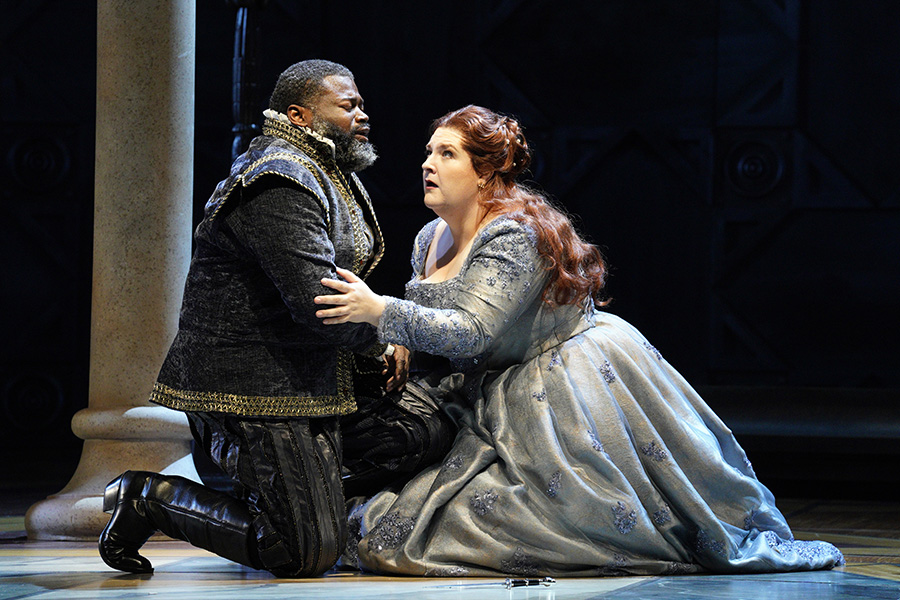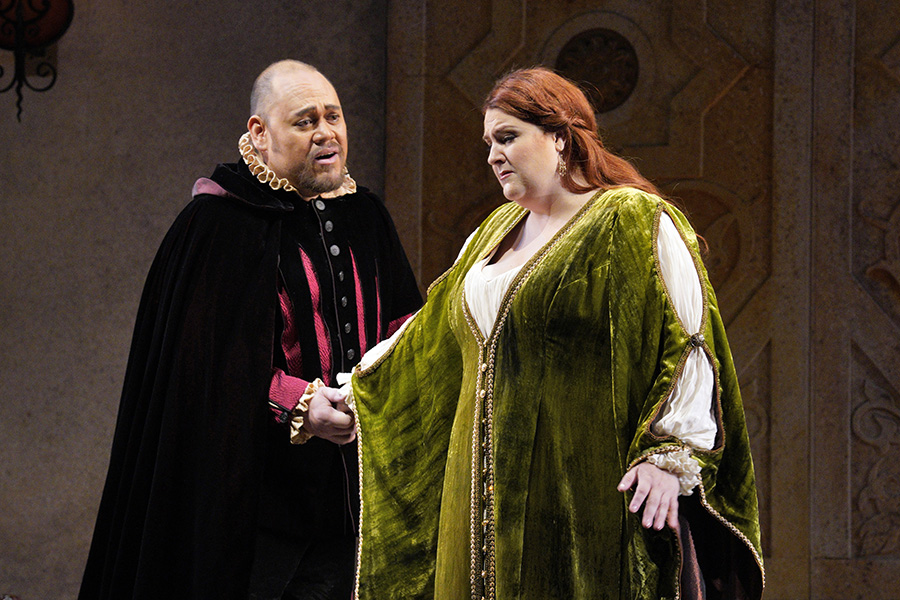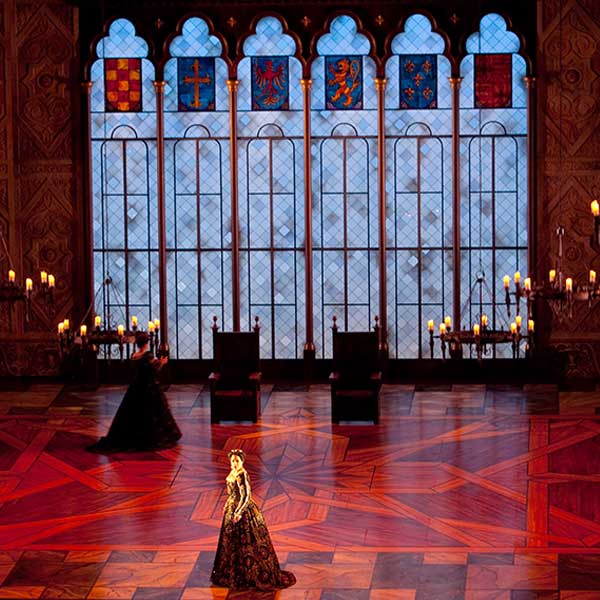September 09, 2022
Between love and duty
The 1830 Paris premiere of Victor Hugo’s Hernani, the play on which Verdi’s Ernani is based, was a significant milestone that marked the beginning of the Romantic era of French drama (the first time I read it was in an undergraduate theater history survey course). For the previous century and a half, French plays had been subject to strict rules dictating tone, subject matter, language, setting, rhyme scheme, and many other details. With Hernani, Hugo rejected these constraints in favor of a new, more passionate and naturalistic style. At the premiere, fights broke out—known as “The Battle of Hernani”— between dueling Classical and Romantic factions in the audience. Hugo and the Romantics won the day, and French drama was transformed.
Verdi was at the forefront of a similar sea change in opera, and he looked up to Hugo (only eleven years his senior) enormously. He was intent on preserving the inherent theatricality and dramatic impact of Hugo’s play while telescoping and compressing the action (a bit too much for Hugo, in fact, who refused to allow his name or title to be attached when the opera was first performed in Paris). The result is a taut, compelling drama that surpasses the original.
Both Ernani and Hernani explore a popular theme of Romantic literature: the struggle between love and duty, usually posed as an internal conflict between personal happiness and responsibility to something greater. Each of our main characters faces this conflict and interprets and acts upon it in their own ways. It is this theme that has drawn me into the piece: What drives these characters to act against their self-interests and subvert their own desires at every turn? What does honor mean to each of them, and how does it compel them to behave?

Russell Thomas (Ernani) and Tamara Wilson (Elvira) in Lyric's 2022/23 production of Ernani.
Ernani, our hero, is haunted by the murder of his father. Although his love for Elvira is sincere, his single-minded quest for vengeance against Carlo is stronger and moves him in a desperate moment to swear his fatal oath. By the time he is ready to forgive and release himself from his duty to his father, his oath has already doomed his one chance at happiness.
In contrast to Ernani’s inexorable journey, Carlo transforms through the course of the piece. He begins as an impetuous, entitled ruler, accustomed to taking whatever he wants and intent on having Elvira by any means necessary. By the end he is able to place his duty to his office and his aspirations to be a great and just leader above his personal desires.
Silva, who represents the old order losing its footing, is more bound than anyone to antiquated ideas of honor. He frequently invokes his ancestors and their ethical code (and many more times in the Hugo play that did not make it into the libretto), and his dogged commitment to his pledge of hospitality loses him Elvira, his one source of comfort, and makes him an enemy of Carlo. While Carlo’s sense of honor compels him to forgive, Silva uses his own rigid interpretation of honor to rationalize his vengeful insistence on the fulfillment of Ernani’s oath.

Quinn Kelsey (Carlo) and Tamara Wilson (Elvira) in Lyric's 2022/23 production of Ernani.
As a woman in a suffocatingly patriarchal society, Elvira faces a different battle: the struggle for agency and autonomy. For her, honor means staying true to herself; she refuses to placate Carlo, and she is ready to take her own life before giving herself in marriage to Silva. She holds all three men to account and often acts as their conscience, most successfully with Carlo. Although she longs for freedom and joy with Ernani, she shares his belief in the inevitability of fate and the promise of rewards in the next life after a lifetime of suffering.
The struggle between love and duty would become a central theme in Verdi’s output. In Ernani and his other early operas we find him experimenting with contemporary source material, learning how to work around the official censors, and pushing against formal constraints, inspired by Hugo and his cohort. Ernani gives us a delicious taste of what’s to come from Verdi, but it also stands alone as an early example of his aptitude for thrilling storytelling.


September 09 - October 01, 2022
Ernani
Ernani
The 2022/23 Season opens with a thrilling continuation of Lyric's acclaimed early Verdi series. This "love quadrangle" inspires grand-scale arias and ensembles, bursting with the unique energy and drive that were Verdi's own. Music Director Enrique Mazzola leads a quartet of world-renowned Verdians in Lyric's sumptuously beautiful production that is designed to bring you an exhilarating operatic experience.
